
John Howard Rutsey was a Canadian musician best known as a founding member and original drummer of Rush. He performed on the band's 1974 debut album, but left shortly after its release due to health problems which limited his ability to tour with the band. He was subsequently replaced by Neil Peart, who would remain the drummer of Rush on the band's future recordings and for the rest of its active history.

Rush was a Canadian rock band that primarily comprised Geddy Lee, Alex Lifeson (guitar) and Neil Peart. The band formed in Toronto in 1968 with Lifeson, drummer John Rutsey, and bass guitarist/vocalist Jeff Jones, whom Lee immediately replaced. After Lee joined, the band went through several line-ups before arriving at its classic power trio lineup with the addition of Peart in July 1974, who replaced Rutsey four months after the release of their self-titled debut album; this lineup remained intact for the remainder of the band's career.
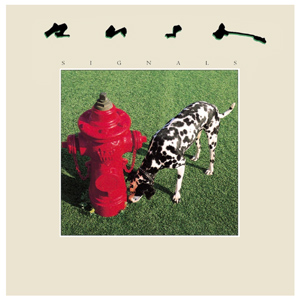
Signals is the ninth studio album by Canadian rock band Rush, released on September 9, 1982 by Anthem Records. After the release of their previous album, Moving Pictures, the band started to prepare material for a follow-up during soundchecks on their 1981 concert tour and during the mixing of their subsequent live album Exit...Stage Left. Signals demonstrates the group's continuing use of synthesizers, sequencers, and other electronic instrumentation. It is the last album produced by their longtime associate Terry Brown, who had worked with them since 1974.
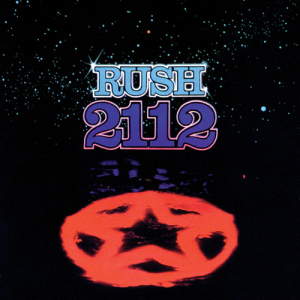
2112 is the fourth studio album by Canadian rock band Rush, released in March 1976 by Anthem Records.

A Farewell to Kings is the fifth studio album by Canadian rock band Rush, released in September 1977 by Anthem Records. After touring their previous album 2112 (1976), which saw the group reach a new critical and commercial peak, they started work on a follow-up. They decided to record at Rockfield Studios in Wales, the first time Rush recorded an album outside of Toronto. The band expanded their sound with each member playing new instruments that they had not previously used, and recorded a mix of concise and long songs.
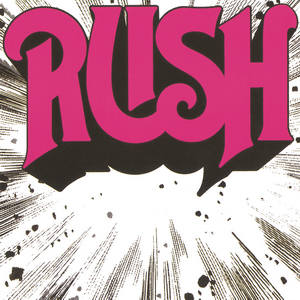
Rush is the debut studio album by Canadian rock band Rush. It was released on March 18, 1974, in Canada by Moon Records, the group's own label, before it was released internationally by Mercury Records later that year. Recorded five years after the band's formation, this first release shows much of the hard rock sound typical of many of the popular rock bands emerging earlier in the decade. Rush were fans of such bands as Led Zeppelin, Yes and Cream, and these influences can be heard in most of the songs on the album.

Fly by Night is the second studio album by the Canadian rock band Rush, released on February 14, 1975, by Mercury Records. It was the first Rush album to showcase elements of progressive rock for which the band has become known. It was also the first to feature lyricist and drummer Neil Peart, who replaced original drummer John Rutsey the previous summer just prior to the band's first North American tour. Peart took over as Rush's primary lyricist, and the abundance of fantastical and philosophical themes in his compositions contrasted greatly with the simpler hard rock of the band's debut album.
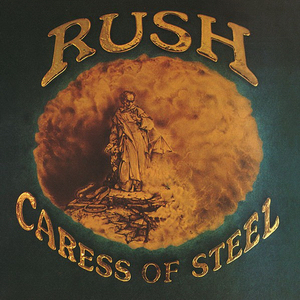
Caress of Steel is the third studio album by Canadian rock band Rush, released on September 24, 1975, by Mercury Records. It marked a development in the group's sound, moving from the blues-based hard rock style of their debut towards progressive rock. However, the shift proved to be a commercial and critical nadir for Rush as the album's darker sound and fantastical compositions initially failed to find an audience and confused some of the band's peers, while poor sales put the band in danger of being dropped by Mercury. Despite being more positively viewed by the band's fans in retrospect, Ultimate Classic Rock noted that the album is still considered "the black sheep of their catalog".
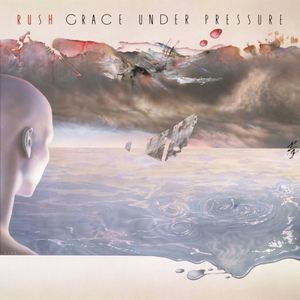
Grace Under Pressure is the tenth studio album by Canadian rock band Rush, released April 12, 1984, on Anthem Records. After touring for the band's previous album, Signals (1982), came to an end in mid-1983, Rush started work on a follow-up in August. The band had decided to not work with longtime producer Terry Brown, who had collaborated with Rush since 1974. The new material accentuated the group's change in direction towards a synthesizer-oriented sound like its previous album. After some difficulty finding a suitable producer who could commit, the album was recorded with Peter Henderson.
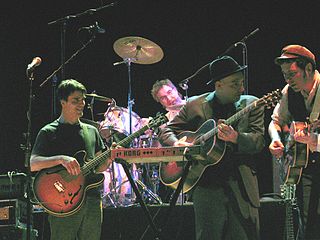
Rheostatics are a Canadian indie rock band. They were formed in 1978, and actively performed from 1980 until disbanding in 2007. After a number of reunion performances at special events, Rheostatics reformed in late 2016, introducing new songs and performing semi-regularly.

Metric is a Canadian indie rock band founded in 1998 in Toronto, Ontario. The band consists of Emily Haines, James Shaw, Joshua Winstead and Joules Scott-Key. The band started in 1998 as a duo formed by Haines and Shaw with the name "Mainstream". After releasing an EP titled Mainstream EP, they changed the band's name to Metric.
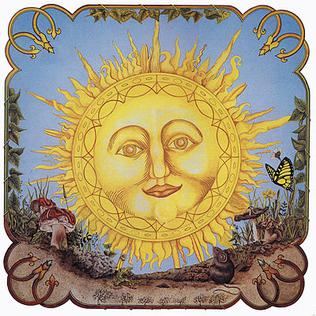
3:47 EST is the debut album by the Canadian progressive rock group Klaatu, released in August 1976. The album was renamed Klaatu when released in the United States by Capitol Records. The album is notable for its Beatlesque psychedelia. The Juno-nominated album cover was painted by a friend of Klaatu's members, a Canadian graphic artist, Ted Jones.

Leslie Feist, known mononymously as Feist, is a Canadian indie pop singer-songwriter and guitarist, performing both as a solo artist and as a member of the indie rock group Broken Social Scene.
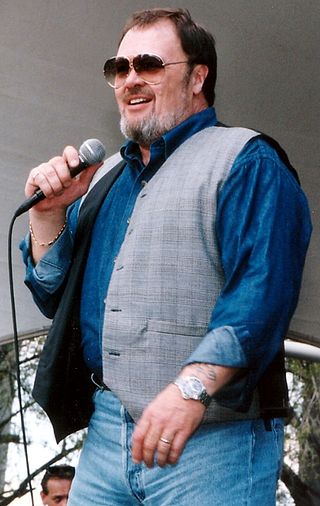
David Clayton-Thomas is a Grammy Award-winning Canadian musician, singer, and songwriter, best known as the lead vocalist of the U. S. band Blood, Sweat & Tears. Clayton-Thomas has been inducted into the Canadian Music Hall of Fame and in 2007 his jazz/rock composition "Spinning Wheel" was enshrined in the Canadian Songwriter's Hall of Fame. In 2010, Clayton-Thomas received his star on Canada's Walk of Fame.

American Football is an American indie band from Urbana, Illinois, originally active from 1997 until 2000. They reformed in 2014.
Lawrence Wayne "Larry" Evoy is a Canadian drummer and songwriter who was the lead singer and founder of the rock band Edward Bear.
Paul Richard Epworth is an English record producer, songwriter, musician, and remixer. He has worked with artists including Adele, Florence and the Machine, Rihanna, and Maxïmo Park, among many others. He is a member of the Music Producers Guild and is the founder and owner of the independent record label Wolf Tone, which has released music from Glass Animals, Rosie Lowe, and The Horrors.
Edward Bear was a Toronto-based Canadian pop-rock group. The band is best known for its chart-topping singles, "You, Me and Mexico", "Last Song", and "Close Your Eyes", used as the signing-off song for Delilah's radio show.
The Negatones is a Brooklyn, New York based band, founded by siblings Jay Braun and Justin Braun with Jun Takeshta and Jesse Wallace.
The Coast was a Canadian indie rock group, based in Toronto, Ontario. The Coast was Ben Spurr, Ian Fosbery, and brothers Luke Melchiorre and Jordan Melchiorre (drums).














